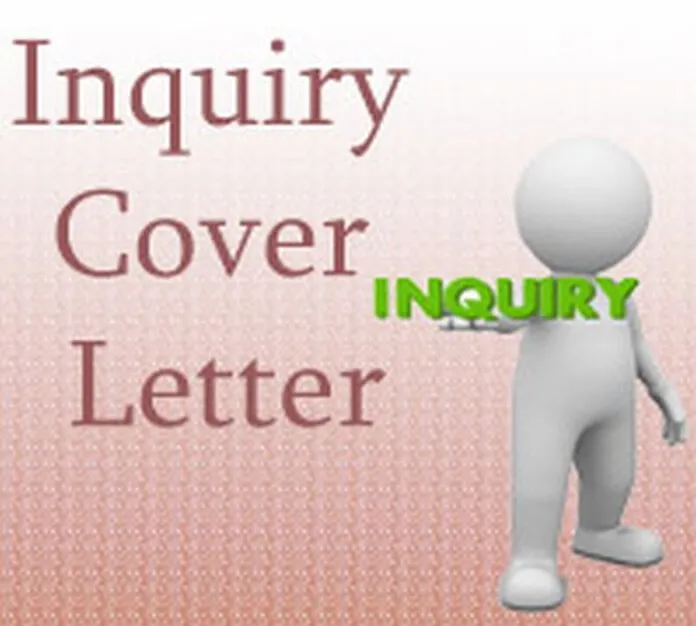What is a Job Inquiry Cover Letter?
A job inquiry cover letter is a proactive communication tool used to express your interest in potential job opportunities within a company, even if there are no advertised openings. Unlike a cover letter tailored to a specific job posting, a job inquiry letter aims to introduce yourself, highlight your skills and experiences, and express your desire to contribute to the company. It’s a way to network and explore possibilities, showcasing your initiative and passion for the organization. This type of letter is an excellent way to get your foot in the door when you’re interested in a company but don’t see any open positions that align with your qualifications. It demonstrates a proactive approach and can potentially create opportunities that wouldn’t have existed otherwise. Writing a compelling job inquiry letter is crucial for making a positive first impression and setting the stage for future employment possibilities.
Why You Need a Job Inquiry Cover Letter
Sending a job inquiry cover letter offers several advantages in your job search. Firstly, it demonstrates initiative and a proactive approach, which can impress potential employers. By reaching out to companies you admire, you signal your genuine interest in their organization and culture. Secondly, it can help you uncover hidden job opportunities that aren’t publicly advertised. Companies may be more inclined to consider your application if you express genuine interest, even if they don’t currently have a vacant role. Thirdly, a well-crafted letter allows you to personalize your application, highlighting how your skills and experiences align with the company’s values and goals. This personalized touch can set you apart from other candidates. Finally, it’s an excellent way to network and build relationships with hiring managers or recruiters. It opens the door for further communication and can increase your chances of being considered for future opportunities.
Key Components of a Job Inquiry Cover Letter
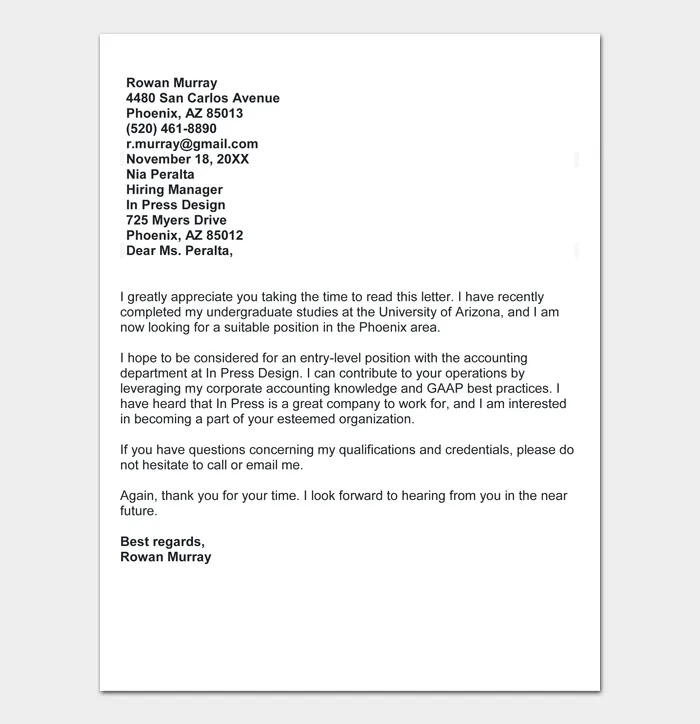
A strong job inquiry cover letter includes several essential components. Firstly, contact information and date ensure easy communication and professionalism. Next, a personalized salutation addresses the hiring manager or relevant contact, demonstrating that you’ve done your research. The body of the letter should highlight your relevant skills and experience, emphasizing how they align with the company’s mission or values. You should also tailor your letter to the specific company, showcasing your understanding of their industry and expressing genuine enthusiasm for their work. The closing paragraph should express your interest in potential opportunities and your availability for an interview. Finally, end with a professional complimentary close and your signature to complete the letter.
Contact Information and Date
At the beginning of your job inquiry cover letter, include your contact information and the date. Your contact information should be placed in the upper-left corner of the document. It should include your full name, phone number, professional email address, and optionally, your LinkedIn profile URL. This makes it easy for the hiring manager to contact you. Below your contact information, include the date you are sending the letter. Ensure the date format is consistent with the conventions of the country or region to avoid confusion. This basic information provides a professional starting point and is essential for any formal communication. Correctly formatting your contact information and date demonstrates professionalism and attention to detail, important qualities for any applicant.
The Salutation
Choosing the right salutation sets the tone for your job inquiry cover letter. Whenever possible, address the hiring manager or relevant contact person directly by name. This shows that you have done your research and are taking the time to personalize your message. If you can’t find a specific name, use a professional and general salutation like “Dear Hiring Manager” or “Dear [Department Name] Team.” Avoid generic salutations such as “To Whom It May Concern,” which can seem impersonal. The salutation should align with the company’s culture. If you are unsure, opting for a formal salutation is often the safest approach. Proper salutations create a positive impression and show respect to the recipient. Researching the company’s website or using LinkedIn can help you find the appropriate contact person.
Highlighting Your Skills and Experience
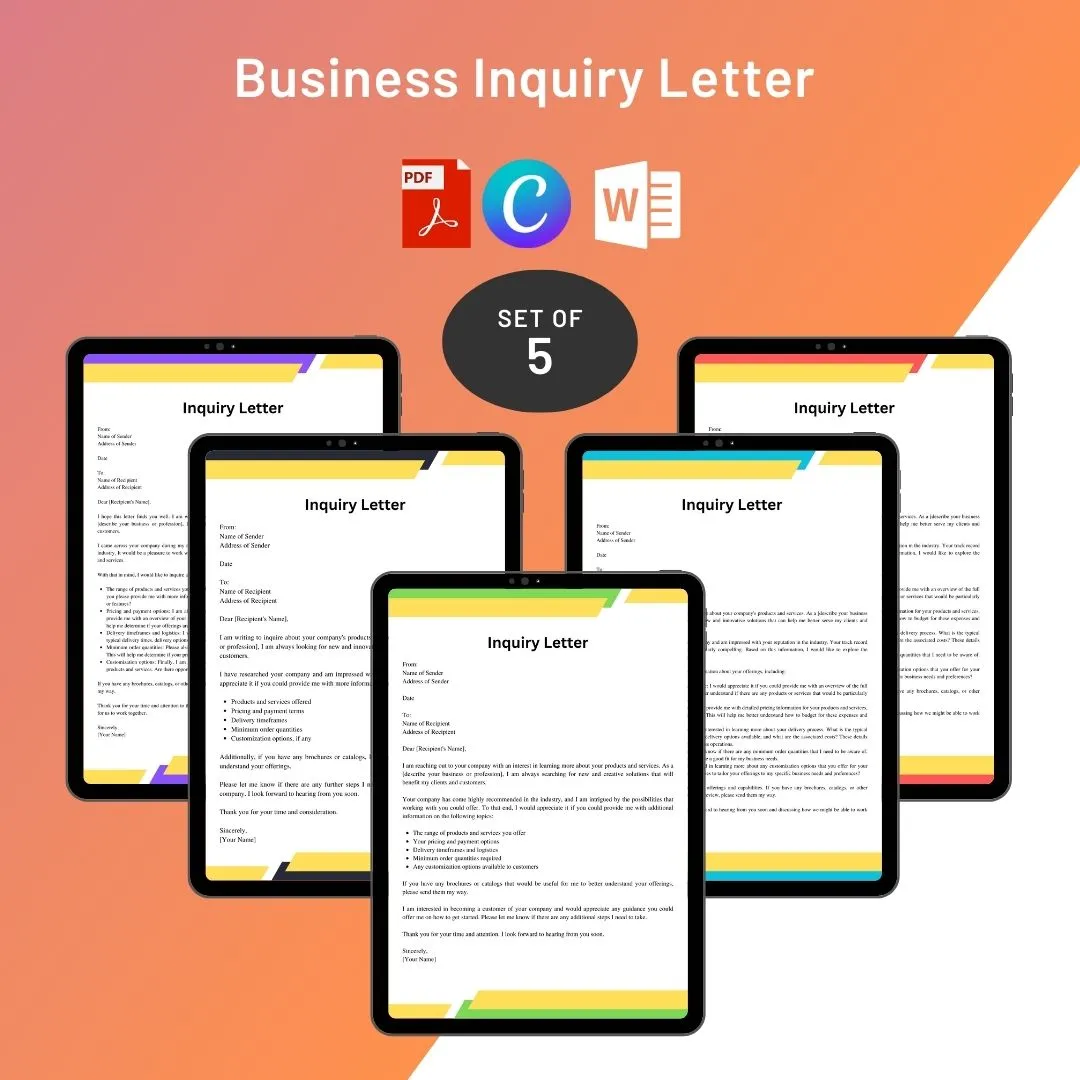
The body of your job inquiry cover letter is where you highlight your skills and experience, making it a critical component. Focus on the qualifications that are most relevant to the company’s field or industry. Explain how your skills and experiences align with the company’s mission, values, or the type of work they do. Provide concrete examples and achievements that demonstrate your ability to excel in a professional setting. Quantify your accomplishments whenever possible by including numbers and data to support your claims. If you have previously volunteered or worked for a similar company, be sure to mention it. This will highlight the fact that you have previous professional experiences. By effectively showcasing your skills and experiences, you create a compelling reason for the hiring manager to consider your application. Be as specific as possible and avoid general statements.
Tailoring Your Cover Letter to the Company
To increase the impact of your job inquiry cover letter, it’s essential to tailor it to the specific company you are targeting. Before writing your letter, research the company thoroughly. Understand their mission, values, recent projects, and industry position. Demonstrate your knowledge by referencing specific aspects of their work that interest you. Explain why you are interested in working for them, and mention how your skills align with their goals. Avoid sending a generic letter; instead, customize the content to reflect your understanding of the company. This shows that you have taken the time to get to know them and are genuinely interested in contributing to their success. By tailoring your cover letter, you increase your chances of capturing the hiring manager’s attention and making a positive impression.
Expressing Enthusiasm and Interest
Expressing genuine enthusiasm and interest in the company is a vital part of your job inquiry cover letter. Clearly state why you are interested in working for the company. Mention specific aspects of their work, culture, or values that appeal to you. Show that you have researched the company and are eager to contribute to their success. Be sincere in your expression and avoid sounding generic. If you have any specific reasons for wanting to work there, or a personal connection to the company, make sure to include it. By expressing your passion, you show the hiring manager that you are truly motivated to join their team. This enthusiasm can make a significant difference in your application, making you stand out from other candidates and leaving a positive impression.
How to End Your Job Inquiry Cover Letter
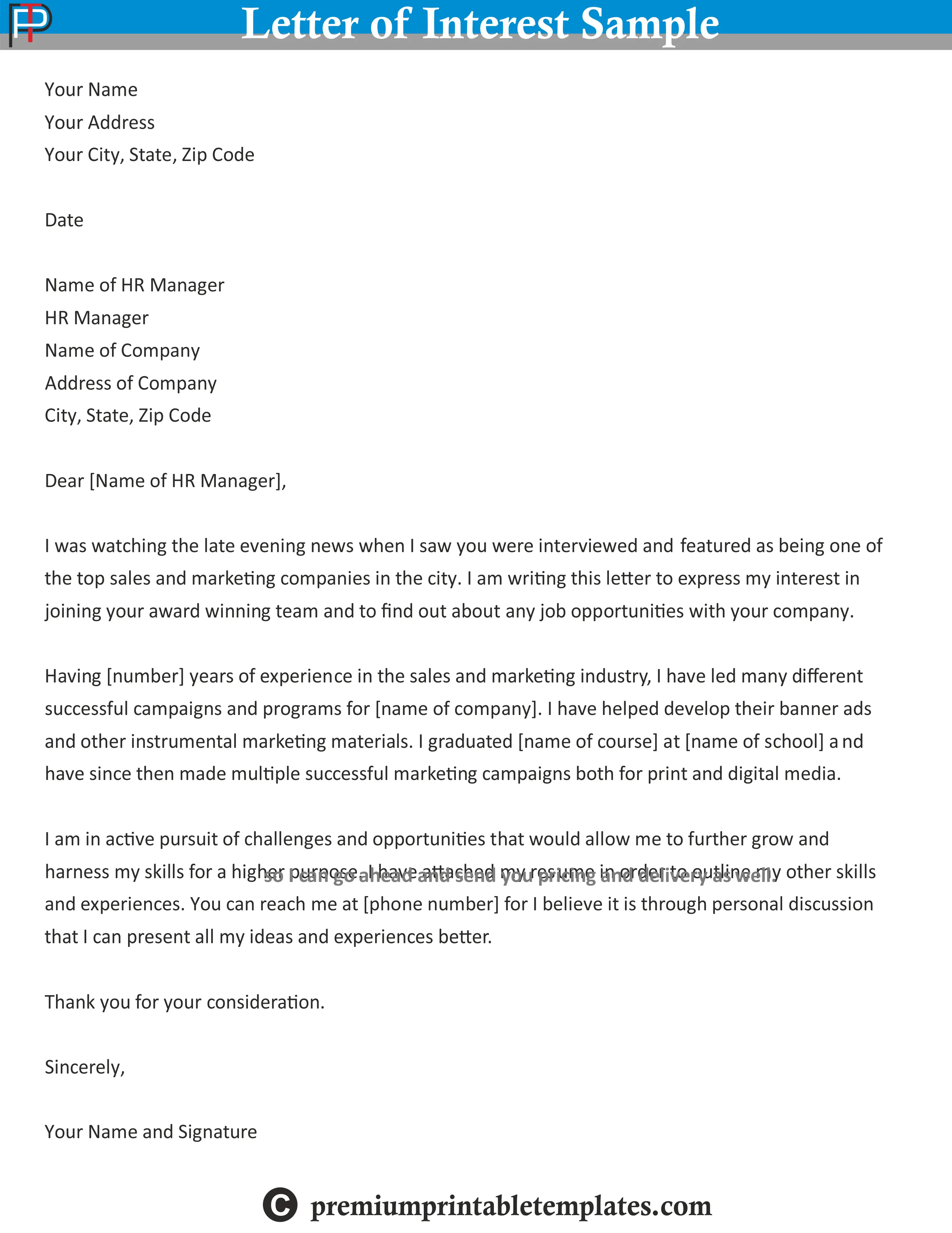
The closing of your job inquiry cover letter is as important as the introduction. In your closing paragraph, reiterate your interest in potential opportunities within the company. Express your eagerness to learn more about any available roles or future possibilities. Indicate your availability for an interview and provide your contact information again. This is a good time to include your phone number if you haven’t done so earlier in the letter. Thank the hiring manager for their time and consideration, showing your appreciation for their efforts. Keep the tone professional and courteous, as you want to leave a lasting, positive impression. An effective closing paragraph reinforces your interest and leaves the reader with a clear understanding of your next steps.
The Complimentary Close and Signature
After the closing paragraph, include a professional complimentary close followed by your signature. Common complimentary closes include “Sincerely,” “Best regards,” or “Thank you.” Choose a closing that aligns with your overall tone. If you are sending an electronic copy, type your full name below the complimentary close. For a printed copy, leave space for your handwritten signature above your typed name. Ensuring a professional signature and complimentary close completes your letter. This final touch shows your professionalism and attention to detail, and it further enhances the overall impression of your job inquiry cover letter.
Proofreading and Formatting Your Cover Letter
Before sending your job inquiry cover letter, it’s important to proofread it carefully. Check for any grammatical errors, spelling mistakes, and typos. These small errors can negatively impact your application and should be avoided. Ensure your letter is well-formatted, with clear and consistent fonts, spacing, and margins. Use professional fonts like Times New Roman or Arial. Make sure the spacing is appropriate for readability, and keep the margins consistent throughout the document. A well-formatted and error-free letter demonstrates your attention to detail and commitment to professionalism. It shows that you value your communication and are willing to put in the effort to make a good impression. Having a second pair of eyes to review your letter can also be very helpful in catching any errors you may have missed.
Common Mistakes to Avoid
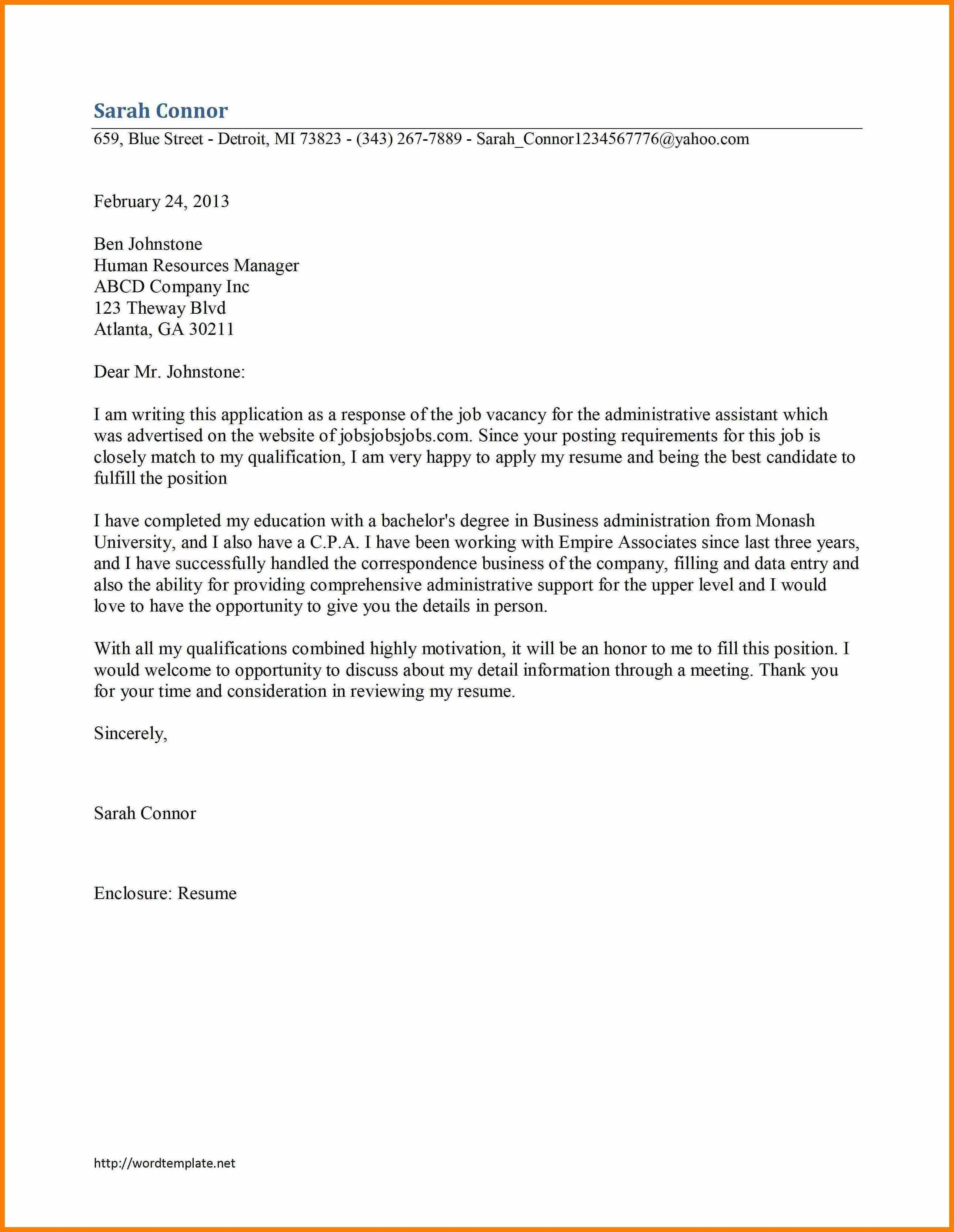
Several common mistakes can undermine your job inquiry cover letter. Avoid sending a generic letter; tailor it to the specific company. Don’t overuse clichés or generic phrases that do not highlight your unique qualifications. Refrain from negative comments or criticism about your previous employers. Also, avoid providing excessive information, such as your entire work history, in the cover letter. Keep it concise and relevant. Furthermore, do not include any information that is not related to the job or your professional skills. Finally, be careful with the tone; maintain a professional yet engaging writing style. By avoiding these common mistakes, you increase your chances of making a favorable impression and standing out from other candidates.
Formatting Your Cover Letter for Success
Proper formatting is essential for a successful job inquiry cover letter. Use a clear, professional font like Arial or Times New Roman, with a font size between 11 and 12 points for readability. Keep the spacing consistent, using single-spacing within paragraphs and a blank line between paragraphs. Set your margins to one inch on all sides. The letter should be concise, ideally one page long. Divide the content into clear sections with headings and subheadings to improve readability. Use bullet points to highlight your skills and achievements. Properly formatting your cover letter ensures that it is visually appealing, easy to read, and professional in appearance. Such formatting demonstrates that you pay attention to detail and can effectively communicate your message.
Using Keywords to Improve Your Cover Letter
Incorporating relevant keywords into your job inquiry cover letter can significantly improve its effectiveness. Identify the keywords that are frequently used in your target industry or the specific company’s job descriptions or website. Use these keywords naturally throughout your letter, especially when describing your skills, experience, and achievements. This helps the hiring manager quickly identify your suitability for potential roles. It also makes your cover letter more likely to be noticed during the initial screening. Be careful not to overstuff your letter with keywords; the inclusion should feel organic and appropriate. This shows you’re aware of the industry’s vocabulary and can tailor your message effectively to match the hiring manager’s expectations.
Following Up on Your Job Inquiry
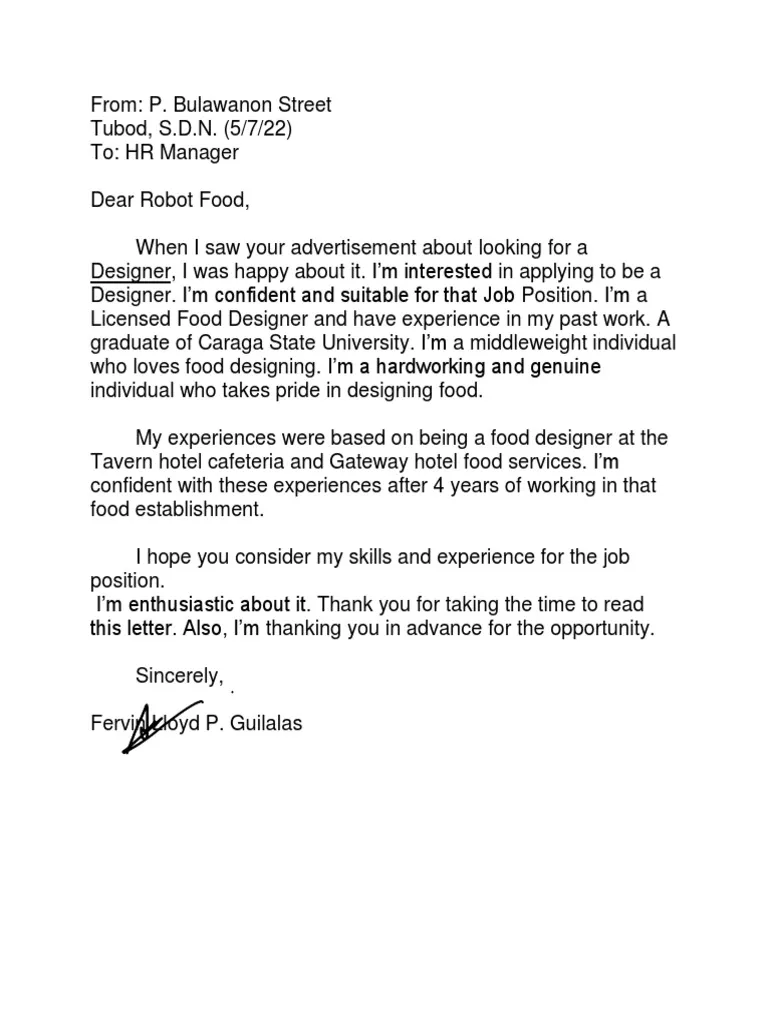
Following up on your job inquiry demonstrates your continued interest and professionalism. Send a follow-up email or make a phone call within one to two weeks of sending your initial letter if you haven’t heard back. In your follow-up, briefly reiterate your interest in the company and the potential opportunities. Reference your original cover letter and highlight any updates or new skills that might be relevant. Keep your message concise and polite, and thank the hiring manager for their time. Following up shows initiative and persistence, which are valuable qualities that potential employers appreciate. However, be mindful not to be too persistent; a single follow-up is generally sufficient unless the hiring manager provides a specific timeline for their response.
When to Send a Job Inquiry Cover Letter
Knowing when to send a job inquiry cover letter can increase your chances of success. Send your cover letter when you have identified a company where you would like to work, even if no positions are currently advertised. Research the company and identify individuals to whom you can directly send your letter. If you’re interested in a specific industry or role, send the letter proactively. It’s often a good strategy to send a job inquiry letter when you are networking or attending industry events, or when you’ve learned about recent company news that aligns with your skills. Avoid sending your cover letter during major holidays or company closures, as this may delay the review process. Tailor your approach and send your letter when you are most likely to catch the attention of a hiring manager.
Examples of Effective Job Inquiry Cover Letters
Reviewing examples of effective job inquiry cover letters can provide valuable insights into structure, content, and tone. Many online resources and career websites provide samples that you can adapt to your own circumstances. Look for examples that demonstrate the key components of a job inquiry letter, such as clear contact information, a personalized salutation, and a compelling introduction. Pay attention to how the writers highlight their skills, tailor the letter to the company, and express their enthusiasm. Study the closing paragraphs and the professional formatting used. Tailoring the letter to your own experiences and customizing it for the company you are targeting is important when adapting those samples. By examining several examples, you can gain a better understanding of what makes a successful job inquiry cover letter.
